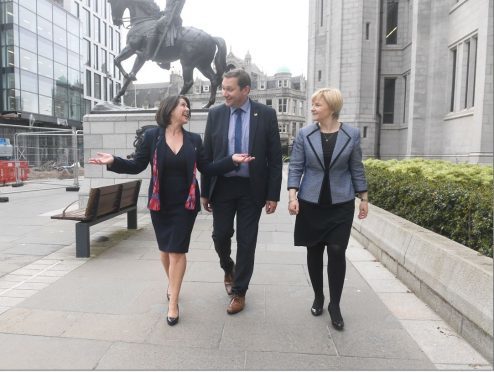The precarious state of Aberdeen City Council’s barren finances has been laid bare in a new report which identifies the authority as having the largest increase in net debt in the country over the past year.
Audit Scotland, the independent body responsible for auditing most of the nation’s public organisations, has published an overview of every local authority’s finances in 2017/18.
The organisation’s public spending watchdog, the Accounts Commission, said that councils’ net debt across Scotland reached £15.1 billion in that period.
Its chairman, Graham Sharp, acknowledged that councils “face an increasingly
complex range of challenges and continuing pressure on finances”.
A section of the report noted that some authorities managed to add to their reserves during the past year despite those obstacles – with South Lanarkshire topping up its savings by £15 million, Stirling by £6 million and Dundee by £7 million.
Aberdeen City Council was singled out for experiencing “a significant
reduction in usable reserves”.
The authority reduced its usable reserve by £21 million, which is a 25% drop.
But council co-leader, Douglas Lumsden, attributed the decline to investing in large projects as part of a “major infrastructure programme” which he expects to pay dividends in the future.
Aberdeen City Council was also highlighted as having the largest increase in net debt – of £211 million.
Audit Scotland attributed the 28% rise to a reduction in investments and
an increase in finance leases, associated with Marischal Square and the
ongoing capital investment and use of reserves to support the transition to its “target operating model”.
Mr Lumsden said he expected the debt to decrease in the coming years as long-term schemes take shape.
He said: “This is because of the major plans we have for the city, we are building for the future and we are the only local authority in Scotland with a credit rating from Moodies, and we are in a strong financial position to move forwards.”
Mr Sharp added that a reduction in real terms funding from the Scottish Government would continue to present a “significant issue”.
He added: “The reduction was largely offset by increases in council tax and councils’ fee income.
“But the forecast trend is for further reductions in funding from the Scottish
Government in the medium term.
“Pressure therefore remains on councils to make further savings and find ways to meet service demand more efficiently
and effectively. This will require difficult decisions and innovative thinking.”
